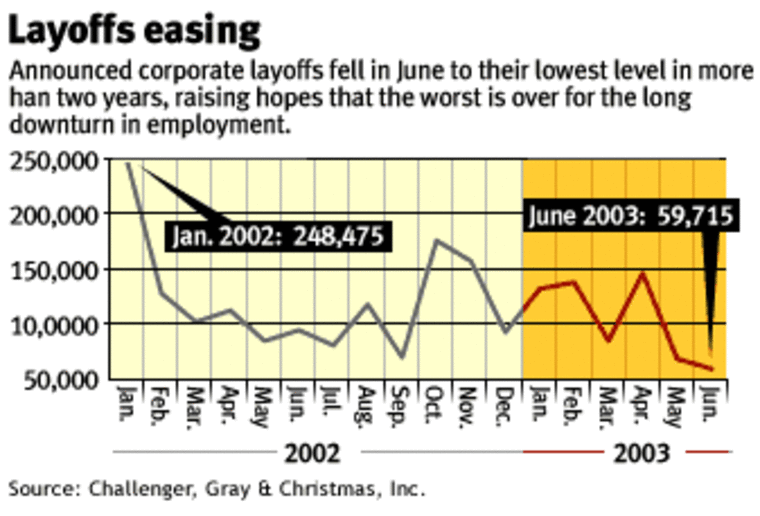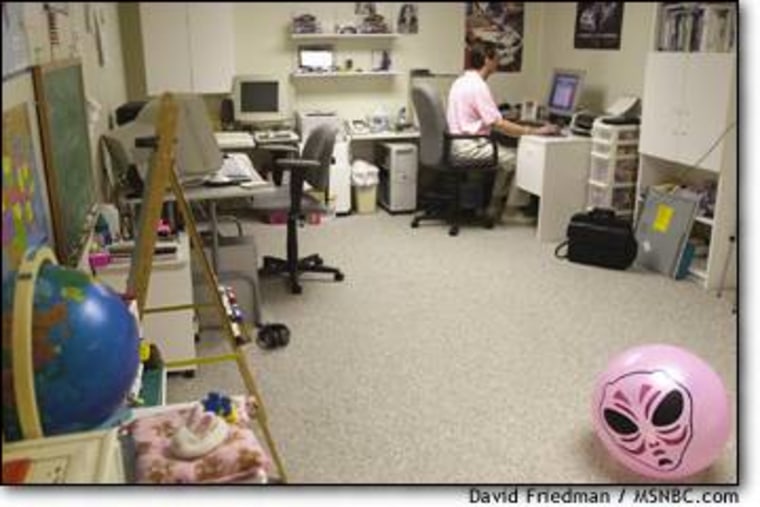Being out of work is hardest for Chad Henderson when his 11 year-old daughter asks her father if he can afford to buy her a toy or game. “I die inside, because she shouldn’t have to worry about that,” says Henderson, a computer specialist who’s been unemployed since 2001.
Before the Internet crash hit in early 2000, Henderson, 52, was earning a comfortable, six-figure income as director of global technology services for business information giant D&B. After nearly 16 years with the venerable financial publisher, formerly known as Dun & Bradstreet, Henderson was a senior manager in a 50-person technology team charged with the responsibility of keeping the company’s computer systems running.
Henderson and his wife, Robyn, imagined he would to stay with D&B until he retired.
He, Robyn and their daughter enjoyed life in their spacious ranch home in a rural, affluent New Jersey town about 50 miles from New York City. Summers were spent relaxing by the in-ground pool in their backyard.
“I truly didn’t appreciate what I had until I lost it,” says Henderson.
As a veteran information technology executive Henderson was accustomed to career security in an industry that had always had more jobs than people to fill them. Demand for infomation-technology (IT) executives exploded in the 1990s as corporations invested billions in technology. But after Y2K passed without incident and the Internet bubble burst, the high-tech industry began to collapse.
In 2001, a new chief executive arrived at D&B, whose operations include ACNielsen and R.H. Donnelly, with a mandate to modernize the 160-year-old company. The company’s stock price was languishing and the CEO began an aggressive cost-cutting mission which lead to D&B outsourcing its computer information functions to another firm.
Along with other key managers, Henderson was laid off in August 2001 with a six-month severance package.
Initially he decided to start his own consulting firm called Optimum Business Solutions and began trying to line up clients in New York.
Then 9/11 happened.

“After 9/11, the dynamics of the IT industry changed immensely,” Henderson says. “The focus had changed from looking at the cost of the machines to looking at the cost of the people. Companies cut staffs. Small companies didn’t have a chance.”
When it comes to job losses, IT has been one of the hardest hit industries in the country. Sales losses and the weak economy meant businesses stopped investing in new technology.
Nearly 5 percent of IT jobs in the U.S. have evaporated in the last year, according to the Information Technology Association of America. What’s worse, many of those jobs are gone forever as more corporations outsource computer functions to firms overseas.
The future remains even more uncertain for IT professionals like Henderson. A recent report by Forrester Research predicted that outsourcing to countries like India, the Philippines and China would cost 3.3 million American jobs and result in $136 billion in lost wages by 2015.
Consulting work is hard to come by. A yearlong project with an investment bank was cut after six months when the investment bank had financial trouble.

In some ways, Henderson is fortunate.
Robyn, a real estate agent working for Century 21, has been able to cover many expenses. They don’t have big credit card bills because they always paid for things like home renovation with cash. They aren’t bankrupt and aren’t yet worried about losing their home.
“We’ve managed to live on a lot less money,” says Robyn. “We don’t use credit cards. We don’t go to movies or out to eat.”
Vacations are out, too.
“The only thing that won’t suffer is my children,” says Henderson. “My little girl still takes piano and dance lessons.” They also continue to financially help Henderson’s 3 grown children from a previous marriage.
But he does worry about having to dig into his 401(k) to cover the $1,000 per month health insurance and the house payments.
“We’re eating that up and I’m afraid the retirement savings is going to be gone in another 12 months,” he says.
In moments of despair Henderson considers leaving IT, a career he’s pursued since he was a teenager, to start his own business in home improvement or lawn care.
“I’m afraid that IT has gone the way of the mechanical engineer, that for the first time in my life, I’m going to be obsolete,” he says.
“People are still getting laid off. Nobody’s growing; everybody’s shrinking. The prospects are so dim, I need to have a fallback position.”
Maybe he won’t need one.
A recent interview for a full-time position with a major corporation in the area looks promising. It’s narrowed between him one other candidate. Chad is confident that the job is a “distinct possibility” although he’s cautious in his excitement.
“You never know. I’ve had jobs that go away the day before I start because the company got into financial trouble,” he says. “But they really liked me. Maybe soon I could have a job offer.”
MSNBC.com update: There’s a happy ending to Henderson’s saga. Shortly after his profile was published, Henderson was offered and accepted a full-time, senior IT position with “a good salary, a signing bonus and excellent benefits” from a nationally known firm, he says.
